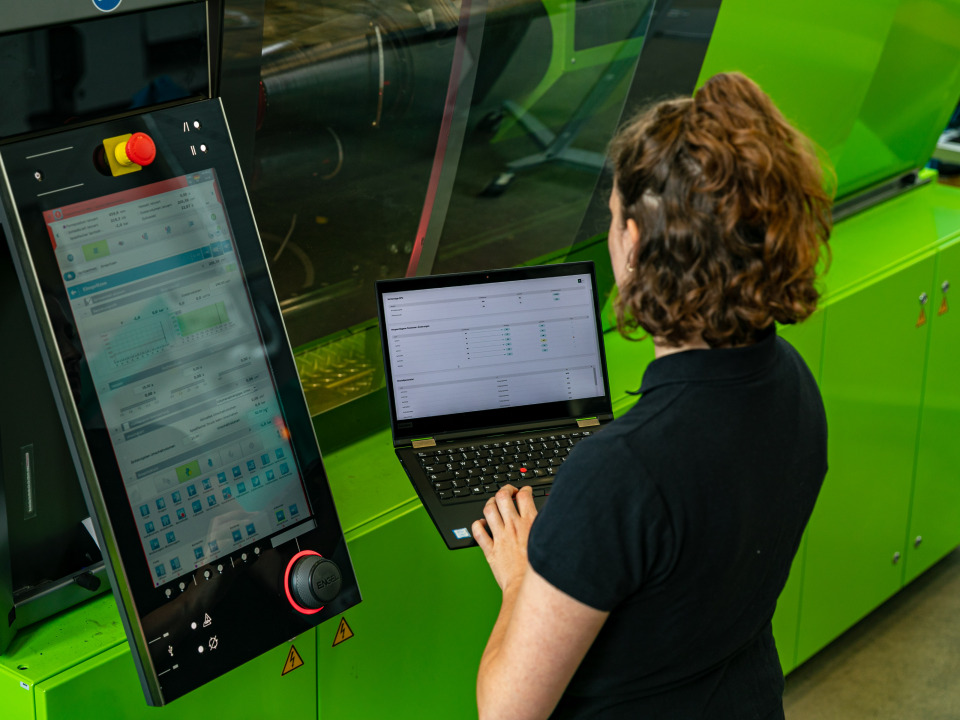.png)
Established companies and start-ups? This is how successful cooperation works
Every second mechanical engineering company has already entered into a partnership with a start-up. Concrete results do not always follow from such a partnership. Christian Riendl, Hosokawa Alpine, and Felix Müller, plus10, reported on the success factors and challenges of their joint collaboration at this year's tea Technology Transfer Congress in Augsburg.

To remain competitive, small and medium-sized enterprises are increasingly turning to new technologies. However, their own companies often lack the relevant expertise in artificial intelligence, machine learning and the like, which is why some companies are entering into partnerships with startups to supplement such skills. According to a study by VDMA Startup-Machine, the focus of such collaboration is on developing new products or improving existing ones. When established companies and startups work together, established structures often meet agile ways of working. A systematic approach is essential for cooperation to create value for both sides. The machine and plant manufacturer Hosokawa Alpine entered into such a partnership together with the Fraunhofer spin-off plus10. At the tea Technology Transfer Congress, they spoke about their cooperation and the guidelines for a successful outcome.
Hosokawa Alpine and plus10 - partnership starts with workshop
The two companies met at the AI Convention, which was organized by the Swabia Chamber of Industry and Commerce in 2020. It quickly became clear that the two companies would benefit from an exchange. Thus, AI and automation experts from plus10 held a two-day workshop at Hosokawa Alpine on site. The goal of this format was to jointly identify and define value-creating use cases of artificial intelligence at the plant manufacturer in order to ultimately solve a customer problem. "Together with plus10, we worked out concrete use cases within two days on how Artificial Intelligence can be integrated into our plants in a way that adds value and at the same time is technically realistic. With their concrete examples of implementation in machine and plant engineering, plus10 made the topic very tangible for us. This has helped us extensively to identify AI applications for our plants," says Christian Riendl, Head of Electrical Engineering at the Film Extrusion Division of Hosokawa Alpine AG, explaining the joint collaboration.
"Finding a common language" - communication in collaboration is the be-all and end-all
In an interview, both cooperation partners revealed what needs to be considered when machine manufacturers and start-ups work together. For Felix Müller , it is clear that the basis is a common language. The experts at plus10 have more of a domain-specific data perspective, whereas Hosokawa Alpine is a highly specialized special machine manufacturer that produces complex film extrusion systems. "Bringing these two worlds together was a discursive process in order to understand each other and then outline solutions together," reports Felix Müller, Managing Director of plus10. An open exchange of experiences brings the parties closer together and creates understanding on both sides. It helps to discuss typical scenarios on specific machines and systems in an interdisciplinary manner, for example together with sales or technical customer support. In addition to open communication, transparency is another success factor. It must be clear to everyone involved at all times what goals are being pursued with the cooperation and what the underlying timeline is. Is the focus on acute problems or are long-term solutions being developed for integration into the product portfolio?
Systematic roadmap as a guarantee for concrete results
To ensure that the exchange is structured, the plus10 workshop is based on a systematic roadmap. Employees from the partner company contribute valuable operational knowledge from different perspectives to the workshop. In addition, AI and automation technology specialists from plus10 provide the necessary expertise on AI fundamentals, existing solutions and best practices. After the methodical derivation of use cases, where a concrete problem is to be solved with the help of AI, these are technically evaluated together with the AI experts. In this way, the company develops, step by step, the AI use cases that are individually suitable for them, with the associated prerequisites, benefits and challenges. As a result of the workshop, the participants receive a concrete preselection of use cases, including a technical evaluation, so that they can move on to implementation in a timely manner.
In the interview, Riendl and Müller also presented the next steps for Hosokawa Alpine and plus10. The results of the joint workshop are to serve as a prerequisite for an intelligent knowledge management system, which in the first step will be available internally and then externally directly for end customers. One thing is certain: both companies have already been able to learn a lot from the collaboration and take away relevant results that will equip them for the future.
Among other things to read at
News from plus10.
.png)

plus10 receives Allianz Industry 4.0 Award for live learning optimization of injection molding machines.
.jpg)
Smart AI: plus10 and ZAHORANSKY optimize MedTech
News from plus10.
.png)
AUMOVIO and plus10: Optimizing automated production in mega factories for large automotive displays

plus10 receives Allianz Industry 4.0 Award for live learning optimization of injection molding machines.
.jpg)



.jpg)